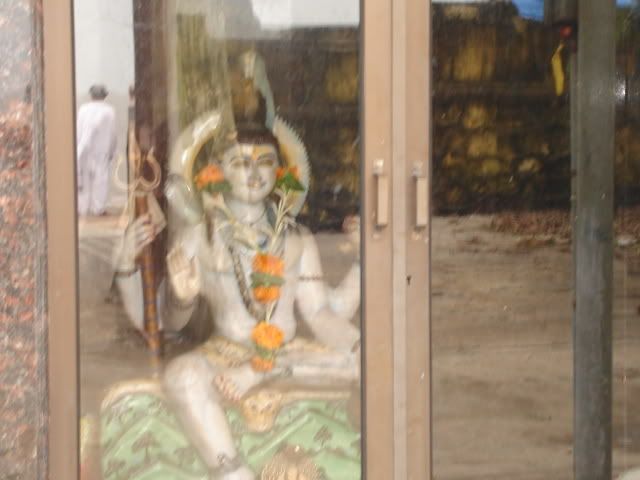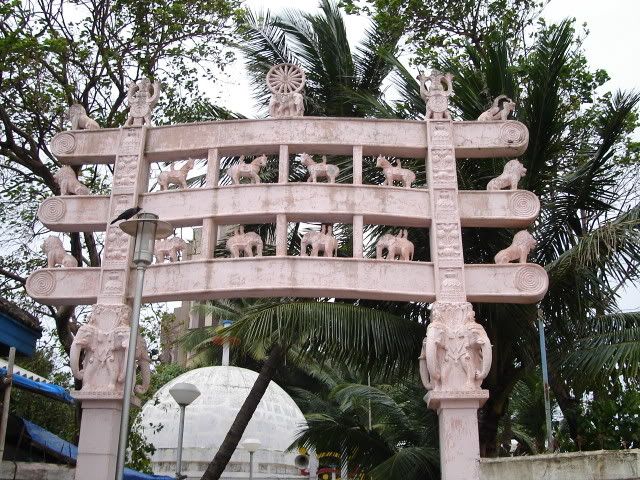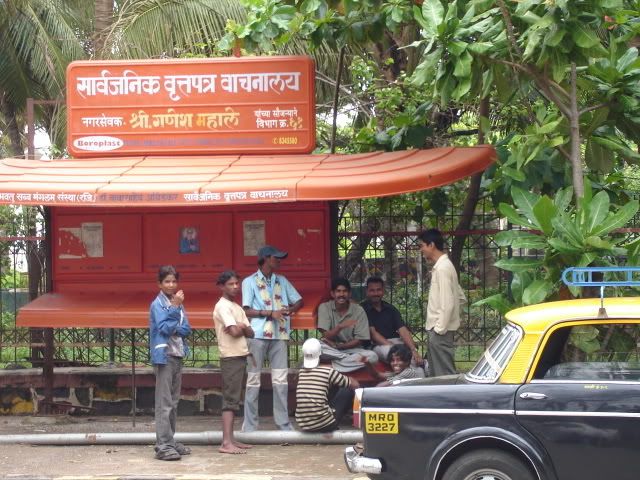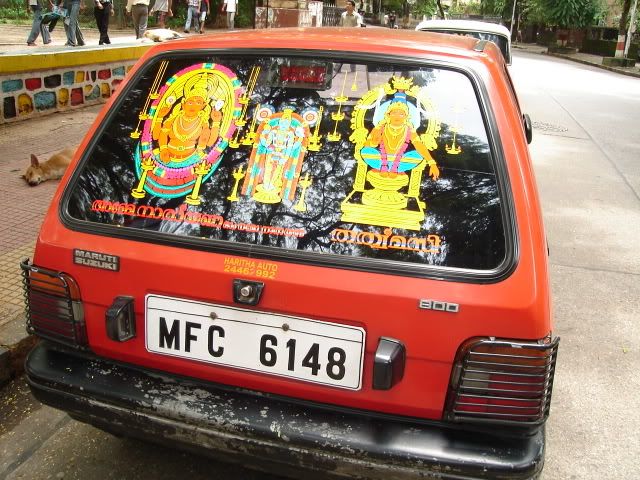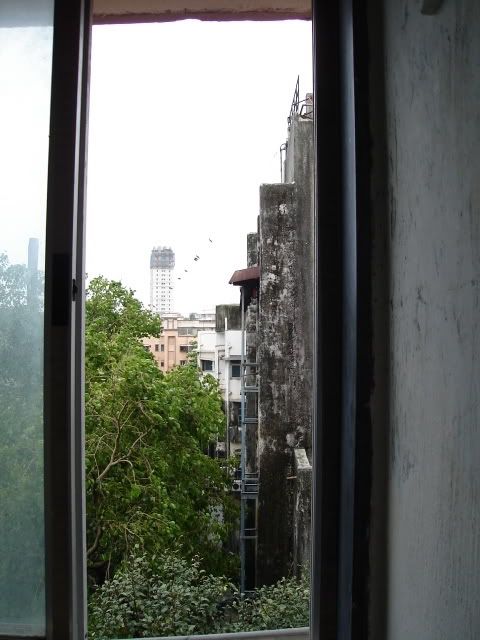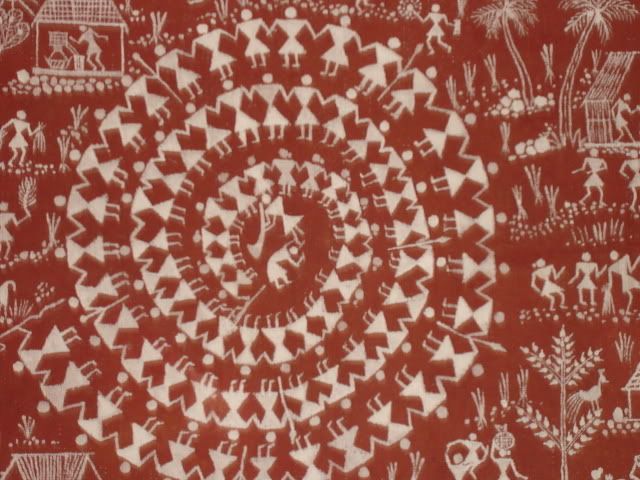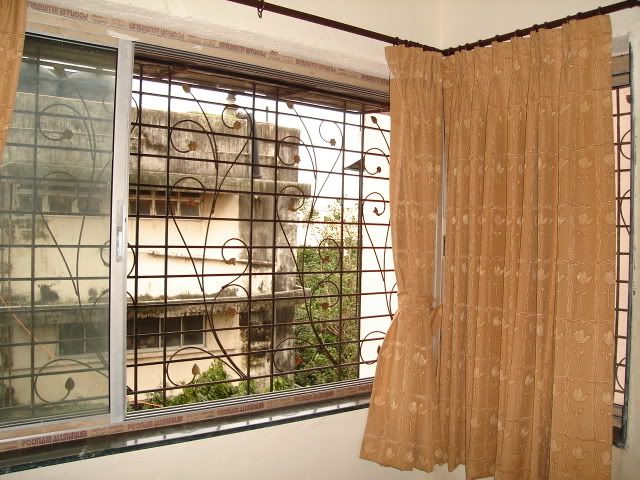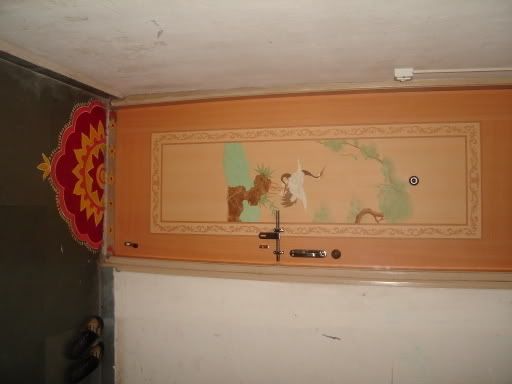Walking along the streets of my neighborhood in Matunga one passes more than a few stalls selling different wall clocks. Mickey Mouse plastic clocks from the 70s sit alongside wooden clocks with images of the blue-tinted Krishna-baby, each one in the tiny stand telling a different time as it ticks along. I love looking at these clocks shops crammed in alongside my block of tiny drugstores, hurrying chai-wallahs, crouching vegetable sellers on the sidewalk, and used-magazine hawkers. The clocks hung up on a wall somehow seem organized and calm amidst the craziness.
Modernity has imposed measured daily time to some extent on society. The ladies selling flowers and vegetables have been here for much longer than the small stall selling clocks. In the States there were no eastern or mountain time zone before railroads began criss-crossing the country, as it didnt matter what "time it was" anywhere else but where you actually were at that instant. Only once train schedules needed to be regulated were time zones instituted ( or invented?) so that one could know exactly when the train would be pulling away from one platform or reaching another. Correspondances used to take weeks or months of time, and now with Fed Ex and email it is resonable to expect a response within 24 hours.
Nevertheless, Time in other forms has been measured throughout the ages. In several cultures the seasons of each year have their corresponding rituals and festivals, and even the days of the week fall into an orderly place. here the festival of Ganesh occurs during the middle to the end of Monsoon season each year. In just a few weeks, thousands of elephant idols will be set up in the streets for worship and then carried off to different bodies of water and thrown in...( I promise to explain more when I understand a bit more about it all)
Similarly for Jews, the timeperiod begining each Friday evening and ending Saturday night is equally important. This day of Shabbat is holier than the rest of the week and has its own special prayers and rituals which vary from one Jewish community to another. For example, the thick white Shabbat candles are not used here to usher in the Shabbat, rather glass oil lamps are kindeled. Also missing here is braided
Challah and wine or grape juice. These "staples" are replaced by different types of bread amongst the different types of Jews here in Bombay,Baghdadi Jews using huge, flat chewy thick pita-type bread called hubs, the Bene Israel a variety of breads. and wine made from sweet raizens pressed with sugar.
In the last few days the measurement of time in years has been on my mind. India first gained her independence 58 years ago on August 15th in the year 1947, a date which has always stuck in my mind because of its proximity to another Independece day one year later in Israel of 1948.
The newspapers all featured articles asking citizens their views on independece and freedom, with editorials on what Gandhi would feel were he alive today in India.
This year, the night before India's Independence day correlated to the 9th day of the month of Av in the Jewish calender. While this country prepared to inaugurate the celebration of its 58th birthday as a free state, the Jews here mourned the nearly two thousand years which has passed since the loss of the Batei Hamikdash, the holy temples which once stood in Jerusalem. It was my first time attending a 9 Av service in a Baghdadi community, and though the melodies of the readings were different, the feelings were very much the same. The mood was somber as everyone sat on the floor, reading by the light of one candle, contemplating the time that had passed since the destructions and tragedies.
I read the book of Eicha outloud quickly along with the Israeli wife of a the Chabad Rabbi in the synagogue. We were upstairs in the womens section, and I felt more in the moment than I had in years, vocalizing the ancient words and twisting my mouth around their strange syllables myself for the very first time. We had finished before the men downstairs were done, and listened to them for the rest of the services. The cantors' voice which was naturally amplified in the enormous hall, broke when he read outloud the number of years since the destruction. my thoughts drifted a bit to my personal memories of Tisha B'Av as the men in the lower part of the Synagogue continues reading. I was thirteen or fourteen years old, floating candles on the water of the swimming pool at my summer camp, trying to keep wax from driping on my text while an older counselor chanted the readings through a portable microphone, I was sixteen, watching Schindler's list in the summer heat. As my thoughts drifted back to the spacious, nearly empty syagogue I realized what it could mean to this community, to read of desolation and of greater days gone by. The Jewish community here, while it has not suffered antisemitism or persecution, has dwindeled out in a short amount of time. Many of these people trace their roots to the times of the Temple, when a trading boat from Israel was shipwrecked on the shores of India. The graves are still there and the subsequent story of the Jews of India living here in peace is incredible.


